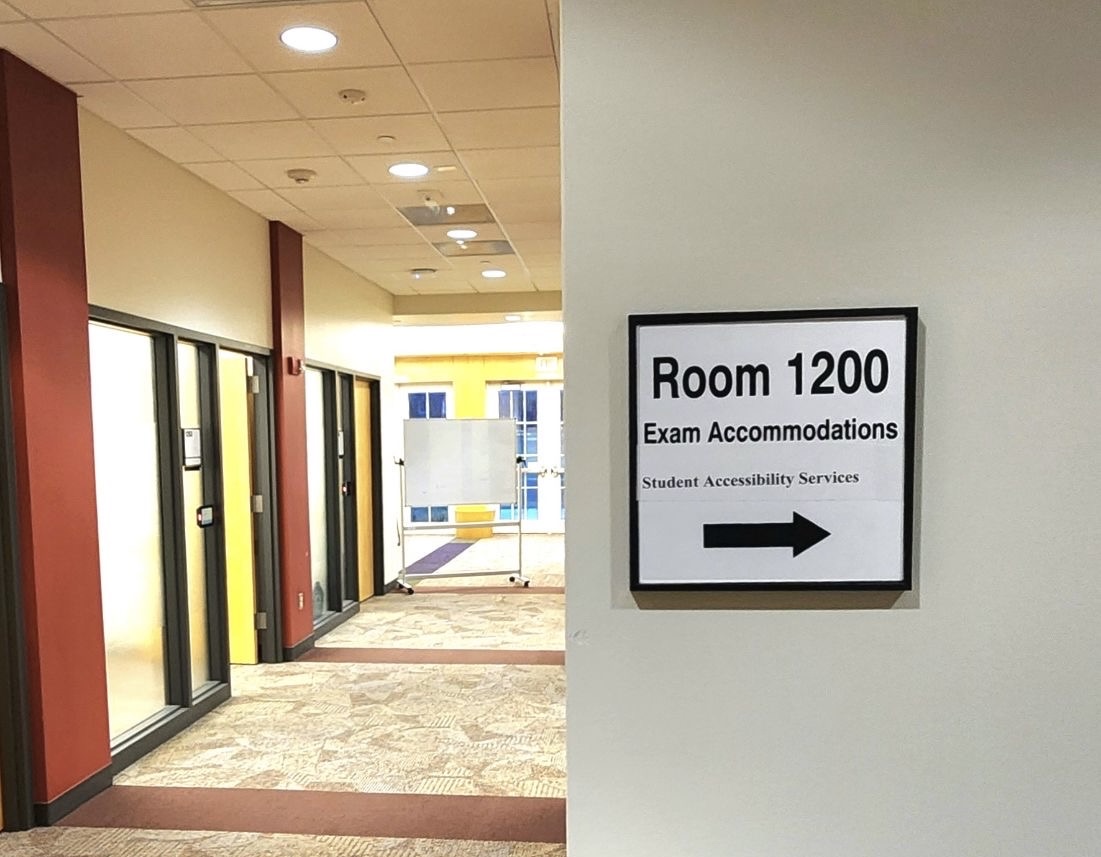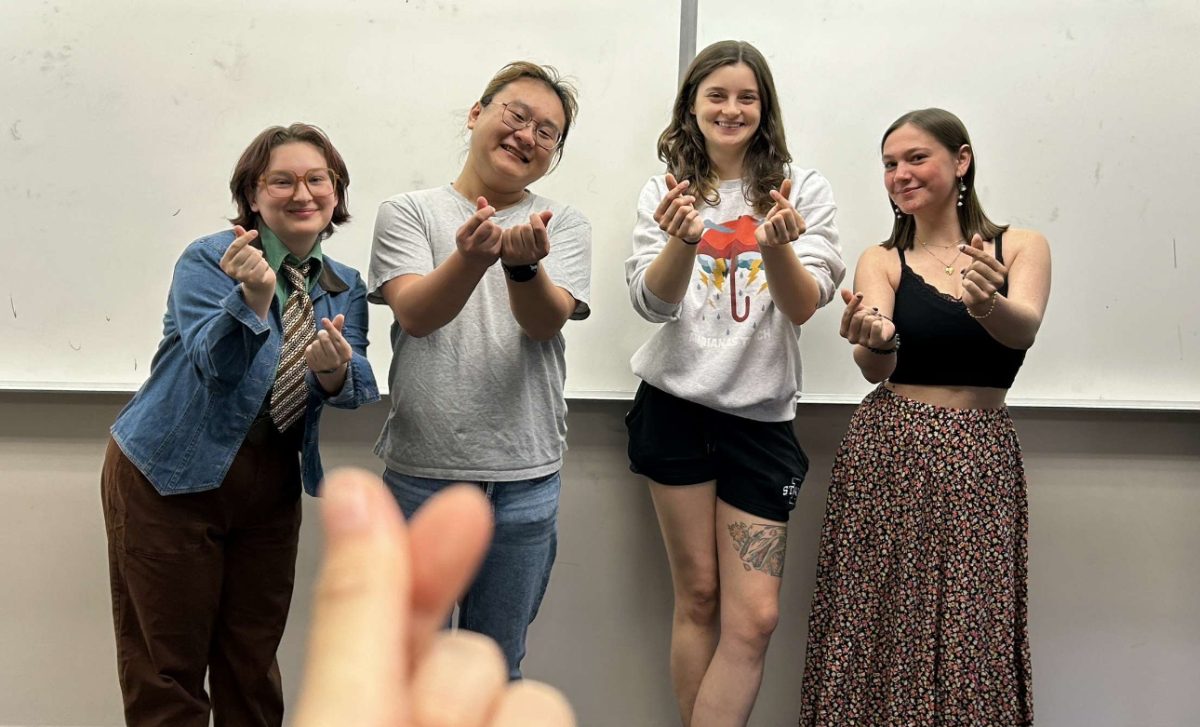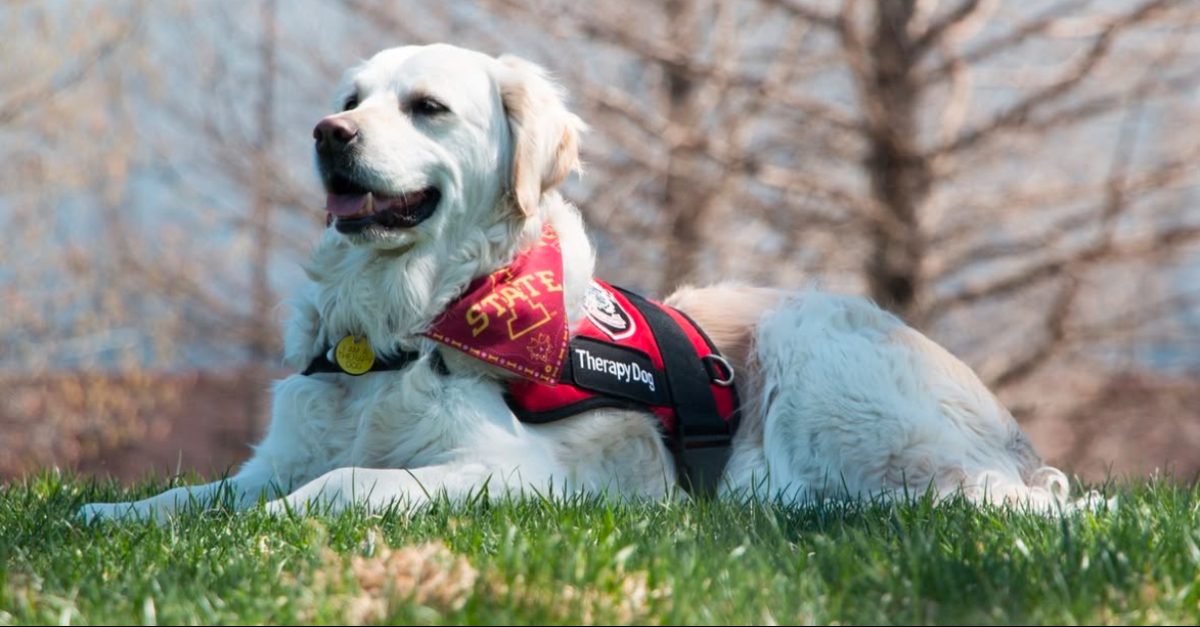The Alliance for Disability Awareness (ADA) is working to support the disabled community and address the legal challenges that students face.
Led by ADA President Cat Phelps, a secondary education and history major, the alliance aims to improve communication between the university and its disabled population.
“We want to be that place where people feel supported and work with other departments to improve how the university meets their needs,” Phelps said. “We want to improve the communication between the disabled community and the university.”
Challenges for the Disabled Community
Currently, one in four people lives with a disability, according to Phelps.
“Everyone will become, at some point, disabled,” Phelps said. “You’re not un-disabled, you’re pre-disabled.”
Legislation in Iowa poses challenges to accessibility and accommodation services at universities. Section 9 of Senate File 2435, which challenges Diversity, Equity and Inclusion (DEI) programs at public universities, could impact support spaces for marginalized students.
“A lot of it is things that are even outside of Iowa State’s control,” Phelps said. “Iowa State has definitely done what it can do to make it easier and make it more accessible.”
Transportation accessibility remains a significant concern. Phelps, who has autism, shared their experience with the CyRide public transportation system.
“It didn’t make any sense,” Phelps said. “I have autism, a disability that affects my visual processing. Seeing that big old map with all the colorful lines crossing and everything, it was just too much.”
On Oct. 22, a panel discussed improvements to CyRide routes to make transportation more accessible. Phelps emphasized the importance of representing those unable to attend such discussions.
“I want myself and our club to act as a messenger to people who might not be able to attend all of these different meetings and panels,” Phelps said.
Navigating Accommodations
According to Phelps, one of the main things that students with disabilities struggle with is “the legal side of seeking accommodations.”
Phelps described challenges in qualifying for accommodations and submitting documentation to professors.
Not all students are required to be diagnosed to qualify for accommodations. Such students must provide records showing there has been a history of their disability. This could be counseling or doctor’s appointments addressing struggles in education because of a possible disability.
Those who have no record of prior history must be diagnosed to qualify for accommodations. The process for getting diagnosed and accommodations can be quick and simple or long and expensive, depending on the individual.
Josie Irwin, assistant director of Student Accessibility Services (SAS), oversees the intake process.
“It can depend on health insurance, the wait time and the diagnosis,” Irwin said. “A lot of it is going well.”
Once approved, students must notify professors of their accommodations and meet with them individually. If professors do not receive notification, they may deny the accommodations.
Sophia Turner, a student worker for SAS and a sophomore in aerospace engineering, noted that misunderstandings with professors are common.
“Sometimes it can be difficult with the professors, and that does happen a lot,” Turner said.
SAS coordinators often intervene on behalf of the students to resolve these issues, but delays can be complicated.
“It could be stressful for the student, and it’s out of their hands,” Turner said. “But the coordinators, that’s a lot of what they spend their time doing, fighting for students to get what they need.”
Phelps said that all of these requirements may deter students from seeking accommodations that would be beneficial to them.
“We want to help students navigate that process and advocate for simpler, more accessible solutions,” Phelps said.
Fostering Accountability and Support
Phelps encourages more students to attend ADA meetings to share their experiences.
“So that I can know if people are having repeated bad experiences with the same professor or a certain department,” Phelps said. “So that we can help to support them through that and make sure that anybody who’s making it harder than it already is is held accountable.”
Phelps also called on faculty to prioritize student needs.
“We can’t control what you think, but we can control the effect that you have as an authority figure in the lives of your students,” Phelps said. “You have a responsibility to put their interests pretty high up on your priorities.”
Despite the challenges, Phelps wants everyone who attends ADA meetings to leave feeling lighter.
“We can be friends with people who aren’t disabled,” Phelps said. ”We have all sorts of stuff to tell you, and we’d love for you to be there with us, to listen, to learn, to grow.”
For more information about the ADA, visit their website.








